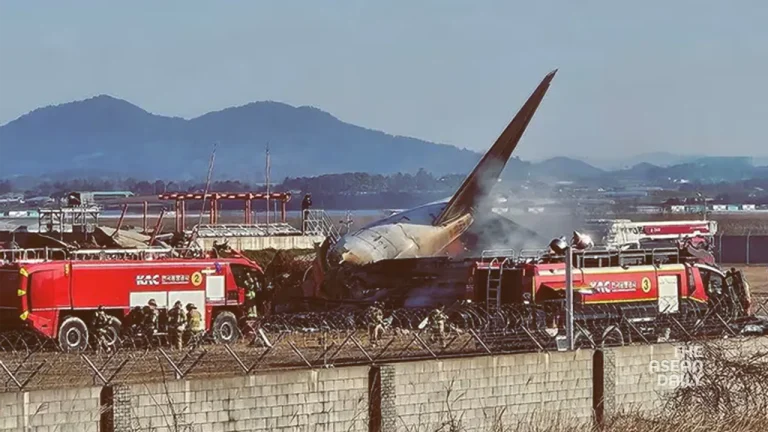17-1-2025 (SEOUL) Fresh evidence has emerged in the investigation of last month’s catastrophic Jeju Air crash, as investigators discovered avian remains in both engines of the ill-fated Boeing aircraft, a source close to the investigation revealed today.
The devastating incident, which marks South Korea’s deadliest aviation disaster to date, occurred when Flight 7C2216 attempted to land at Muan International Airport on 29 December. The aircraft, arriving from Bangkok, failed to maintain altitude during its final approach, resulting in a catastrophic belly landing that saw the plane overshoot the runway before colliding with an embankment and erupting into flames.
The latest findings substantiate earlier reports from investigators who had initially identified feather fragments in one engine. Security camera footage from the airport had previously captured the moment of impact between the aircraft and what appeared to be a flock of birds moments before the crash.
This development provides crucial insight into the chain of events that led to the loss of 179 lives aboard the Bangkok-Muan service. Bird strikes, whilst relatively common in aviation, rarely result in such catastrophic outcomes, particularly given modern aircraft’s robust safety systems designed to withstand such incidents.




